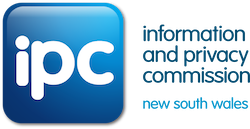NSW Information Commissioner highlights the significance of access to environmental information this Right to Know Week NSW 2025
Today, the NSW Information Commissioner, Emeritus Professor Rosalind Croucher AM, launched Right to Know Week NSW 2025.
Right to Know Week NSW takes place this year from 29 September – 5 October 2025 and focuses on raising public awareness about the right to access government information under the Government Information (Public Access) Act 2009 (GIPA Act) and reminding NSW public sector agencies about their obligations.
The 2025 theme is ‘Ensuring access to environmental information in the digital age’.
On this year’s theme, Commissioner Croucher said, ‘Right to Know Week is a powerful reminder that access to government information is not just a legal right, it’s a cornerstone of democratic participation. This year, we shine a spotlight on environmental information, which is essential for informed decision-making, community wellbeing, and sustainable development.
‘In the digital age, environmental information should be easy to find, understand, and act on. NSW agencies have a responsibility to ensure that the public can access data about the natural, built and urban environments that shape our lives.
‘Whether it’s climate data, air and water quality, or urban planning decisions, transparency in environmental information empowers communities to advocate for their needs and contribute to a more resilient and equitable future.’
With a focus on public participation this year, the IPC will be holding a Right to Know Week panel discussion tomorrow: Ensuring access to environmental information in the digital age. The Information Commissioner will be joined by expert panellists across government and academia in discussing public access to environmental information that enables communities to participate in decisions that shape their neighbourhoods and advocate for fair access to green spaces and clean infrastructure.
Commissioner Croucher said, ‘This year, I invite NSW government departments and agencies, universities, local councils, ministers’ offices and state-owned corporations to take proactive steps in ensuring environmental information is easy to find, understand, and act on.’
The IPC has supported Right to Know Week since 2014 and continues to lead efforts to improve understanding for agencies and the public about their rights and responsibilities under the GIPA Act. This year’s campaign highlights how access to environmental information supports civic engagement, public safety and sustainable development, especially in densely populated areas where environmental risks may be higher.
More information, including events taking place during the week and resources on information access rights in NSW, are available on the Right to Know Week NSW 2025 website.
ENDS
For further information, please contact:
The Manager, Communications and Corporate Affairs on 0435 961 691 or email communications@ipc.nsw.gov.au
About the Information and Privacy Commission:
The Information and Privacy Commission NSW (IPC) is an independent integrity agency that supports the NSW Information Commissioner and the NSW Privacy Commissioner. Its vision is that privacy and access to government information are valued and protected n NSW. The Information Commissioner is the chief executive of the Commission.
About the NSW Information Commissioner
The NSW Information Commissioner’s statutory role includes promoting public awareness and understanding of the Government Information (Public Access) Act 2009 (GIPA Act); providing information, advice, assistance and training to agencies and the public; dealing with complaints about agencies; investigating agencies’ systems, policies and practices; and reporting on compliance with the GIPA Act.
The Government Information (Information Commissioner) Act 2009 (GIIC Act) establishes the procedures for appointing the Information Commissioner and sets out the Commissioner's powers and functions. It outlines the method for people to complain about the conduct of agencies when undertaking their duties under the GIPA Act, and the way in which the Information Commissioner may deal with the complaint. The GIIC Act also enables the Information Commissioner to investigate and report on how agencies carry out their functions under the GIPA Act.
For further information about the IPC visit our website at http://www.ipc.nsw.gov.au



